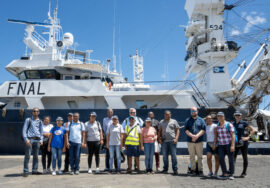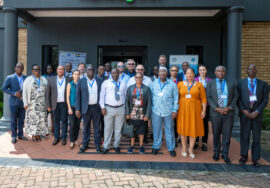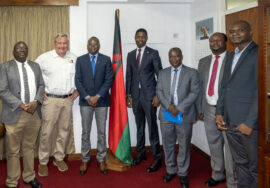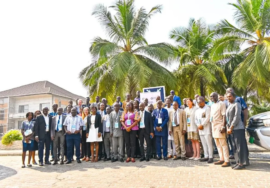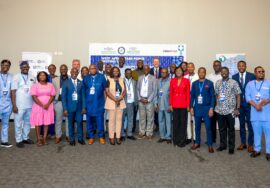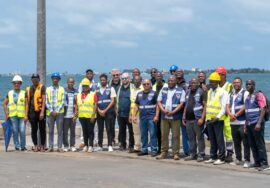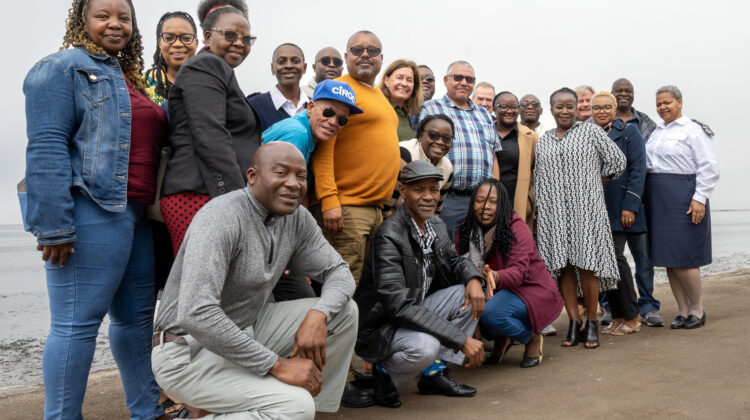
Vigilance and Cooperation – essential assets of Namibian fisheries officers to combat IUU fishing
March 2024 — Per Erik Bergh (CEO and Managing Director), Sandy Davies (Technical Director), JD Kotze (Investigator) and Andréa Durighello (Fisheries Expert) travelled to Namibia for a second capacity-building workshop with Namibian MCS officers under the project SADC Atlantic. This second physical workshop was organised on 13-15 March 2024 and 18-20 March 2024 in Walvis Bay and Lüderitz, to consolidate the learnings since the beginning of the project SADC Atlantic and address other priorities identified with the fisheries staff and management at the beginning of the project. Because both ports and officers work in different contexts and experience different challenges, the project team adapted the training to the needs expressed by the participants on the ground. The training raised awareness on the importance of risk assessments of fishing vessels, and not only in the case of foreign vessels requesting access to port for offloading or services. Such risk assessments are equally important for national vessels, as the risk assessment exercises conducted in Lüderitz showed it. Due diligence should also be conducted on vessels requesting a fishing licence from the Fisheries Ministry to access fishery resources of Namibia, a fishing authorisation from the Ministry of Works and Transport, or an authorisation to import fish products into Namibia. To prevent the infiltration of any possible illegality into those operations, fisheries officers must be vigilant. For this, they understand the need to cooperate with other agencies, who also play an important role in fighting IUU fishing, such as the port authorities, customs and the Directorate of Maritime Affairs of the Ministry of Works and Transport. Following this workshop, SIF will continue working closely with Walvis Bay and Lüderitz officers through remote coaching and mentoring. As a next step, focus will be set on elaborating standard operating procedures (SOPs), to provide MCS officers with an enabling framework for their work, with clear and systematic processes. Interagency cooperation will also be a priority for the way forward.


